What is the purpose of Philosophy?
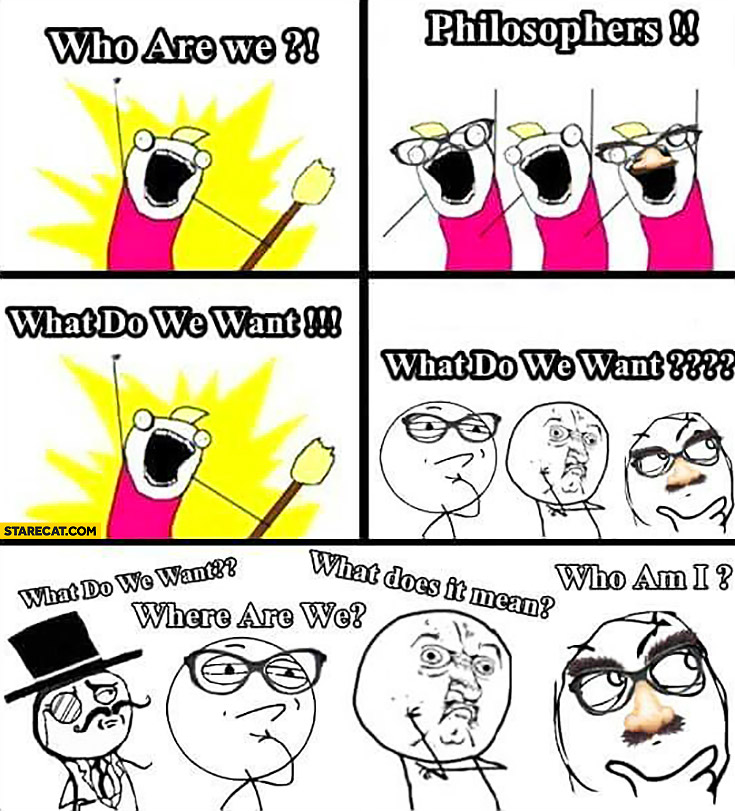
We live in a competitive and fast-moving world where everything’s success depends on the outcomes and their value delivery. Take any example, if any movie release fails to entertain the major audiences, consider it flopped; if any project is not delivering the expected profits to the company consider it stopped; if any equipment is not working properly for the performance it promised, consider it a market failure; if any start-up is not built upon the actual market requirements, consider it a flop business; an employee fails to reach his targets, consider no promotion or even a pink slip. Whenever you are working on achieving anything and if your actions and thought process behind them are not directing you to the Goal, people will suggest you to change your strategy. In nutshell, everything you do, every thought you have is expected to have a fruitful outcome, value creation, profit, gain, benefit thereby there must be some utility. We now call these things, these thoughts “practical”. General thought process always suggests to have the practical way of life in order to succeed in a way.
I am of the same opinion, that doing certain things, acts, thinking (actually overthinking) about everything you stumble upon is expected to deliver some “practical” benefit in my life. If you studied enough and can’t get the job of specific salary then what good is your education? There must always be some definite value delivery from our actions otherwise we are just wasting time and getting nothing.
The situation worsens when you implement the same logic to the ways you think about anything and everything you stumble upon. It is like day dreaming as you are only thinking about some random things, are engrossed completely in the world of your own and there is no real-life benefit from it. Then, it becomes imperative to “Get Real” in life, sort your things and be practical and use your common sense.
Now, here comes a short story-
In a fight, the flight attendant finds an elder person going through severe chest pain, she immediately asks for the expert help.
Flight Attendant- Attention all, we have an emergency. Is there any Doctor onboard?
(One person raises his hands)
The person- Yes, I am a doctor.
Flight Attendant- We need medical help.
The person- But, I am a doctor of Philosophy.
Flight Attendant- He is going to die
The person- Aren’t we all anyways?
One can only imagine the awkwardness and impractical response of philosopher to the situation in the flight.
I used to think that the philosophy and it’s ideas yet interesting and intriguing cannot handle the reality of life and solve practical problems.
And, (as usual) I was wrong.
Here it goes…
The question is-
Will thinking about every possible thing you are exposed to (and even about the things you may never get exposed to) and asking “unnecessary questions” about it add value to our life? Will thinking about things irrelevant to your job is going to increase your performance at your workplace? Is thinking about any random thing is going to put food on your table?
In short, what is the worth of the philosophical ideas, questions if they are not going to solve our practical problems? What is the practicality of philosophy?
This was the question I was stuck at; even though philosophical ideas have always intrigued me.
Then I found my answer in Bertrand Russel’s book called “The Problems of Philosophy” with the last essay called “the Value of Philosophy”. The ideas explained by Bertrand Russel in this writings answer the very basic question about the utility of philosophy.
Ends of life
Russel explains the idea of ends of life by distinguishing between the nature of Physical Sciences and the philosophy. The idea is that all the physical sciences that we as a human have established have contributed to the society in some ways. The developments in physics led to inventions of uncountable things like lasers, semiconductors, telescopes, machines and what not hence landing mankind into the modern world. The developments in virology, bio-technology, modern medicines helped us to come out of the global pandemic. The developments in geography helped us to explore the globe, share our trades, cultures, profits, save us from natural calamities. The psychology helped in maintaining the mental well-being, the social well being of the society there by controlling the sanity in the people. The economics helped to efficiently utilize and manage our resources in order strive as a species on a space floating rock. These physical sciences have mastered various ends of life and are continuously contributing ahead
What about philosophy? If we are going to discuss how certain philosophy has solved the world hunger or how a philosophy has cured the incurable diseases in history or how a philosophy has saved people from famine or how a philosophy landed us on another celestial body, then the answer is surely no. There are no practical ends of life which philosophy helps us to achieve.
Uncertainty of philosophy
Bertrand Russel has very beautifully established the difference between the nature of Physical Sciences and philosophy. The Physical Sciences have postulates, theories, formulae, a definite structure which builds the all knowledge they represent. There is a systematic path to be followed in order to answer the posed question. If you ask a physicist why the sky is blue? he will approach the problem from the branch of optics then thereby refraction and scattering and the spectrum of light. If you ask how the eclipses occur? to an astronomer, he will take you through solar system, to planets, their satellites and their rotations, orbits. It can go on and on.
In short, in all the physical sciences the truths established are definitive. There are definite answers to the questions posed. Such is not the case with philosophy. If you pose a philosophical question as in “What is the purpose of life?” every philosopher will have his own versions and there is no surety of definite answer. If you ask questions like, why was the world created? Why was the universe created? Are we really body with a soul or a soul with a body?
See the pattern we can observe from the philosophical questions is that the truths they are giving are not certain. On contrary, the truths revealed in physical sciences are definite, their truth value is certain based on the truths they are derived from due to structured-ness. Bertrand Russel establishes that all the physical sciences are originated from philosophy. When the definitive-ness, certainties of truth extraction system, knowledge building system of these philosophies became strong, they separated from the philosophy and get independence.
Thus, the only thing certain in philosophy is that there are no certain answers to the questions posed. If the answers are getting definitive, certain then a new physical science gets established thereby separating from philosophy. Philosophy of mind became psychology; philosophy of heavenly bodies became astronomy.
What I found interesting in this idea of “genesis of physical sciences from philosophy” is that though upon certainty of truth/ knowledge physical sciences become free from philosophy, the next unanswered questions in physical sciences immediately start to redirect themselves to philosophy again until the certainty of answers are obtained thereby proving the presence of philosophical inheritance. Our quest for understanding “the nature of reality” in the world of modern physics is one such strong example.
Richard Feynman in one of his famous lectures discussed about questioning the nature of reality as we understand:
“it’s a very strong tendency of people to say against some idea, if someone comes up with an idea, and says let’s suppose the world is this way.
And you say to him, well, what would you get for the answer for such and such a problem? And he says, I haven’t developed it far enough. And you say, well, we have already developed it much further. We can get the answers very accurately. So, it is a problem, as to whether or not to worry about philosophies behind ideas.”
Richard Feynman
Meaning is it not always compulsory to have structured-ness and definitive nature to any idea. There may be always some indefinitve-ness to the answers in philosophy.
Truth of the answers to the questions of philosophy
Now that it is clear that the answers to the questions in the philosophy are not definite, not certain; it is also important to understand that the answers don’t lose their value due to their indefinite or uncertain nature. Rather they bring us closer to the unrealizable, un-experienceable truth.
According to Russel, the confinement of knowledge is the major point which poses the question on “the practicality” of philosophy in our life.
I think what Russel is trying to say here is that as soon as the nature of the truth of knowledge starts following a pattern/ a trend, it gets confined in the structured-ness of certainty thereby getting its independence, self-reliance. The philosophy hence will always remain as a field (even the word “field” is so confined) rather expanse of uncertainty where there will always be some room for speculation.
In order to ask for value of philosophy, one has to confine it to some ideas and then compare these ideas to other ideas. But the game philosophy plays here is that the you lose the identity of philosophy once you confine it to some set of ideas in knowledge/ physical sciences. Thus, remains incomparable.
Funny thing is that the solution of such problem will start with – What is comparison? How to measure the worth of anything? (Which themselves are good philosophical questions!)
Philosophic Contemplation: the idea of Self and not-Self
Russel suggests that the value of philosophy will be only realized when the ends of the life are not limited to ‘Self’. I think what Russel is trying to convey is that the realization of something greater above ourselves itself is humbling. Understanding that the knowledge will still exist irrespective of our existence is one important part of we becoming free from our own identity.
When there will be search for knowledge for Self, the answers gained will be confined, they will always reflect the nature of the self or the seeker.
But, once one understands that the knowledge, philosophy is above himself i.e., once a person starts seeking questions to the answers not for the betterment of himself only but for the knowledge itself then the knowledge reveals itself. This knowledge will not be definitive, certain. This knowledge will not have concepts of good or bad, pure or impure, left or right, profit or loss, worthy or unworthy. It will be only the knowledge itself where truth is still uncertain, indefinite an innocent. Russel calls the philosophy as the union of Self with not-Self. That is in order to understand something greater than ourselves, we have to lose the idea of ourselves, our being.
The curse on humanity
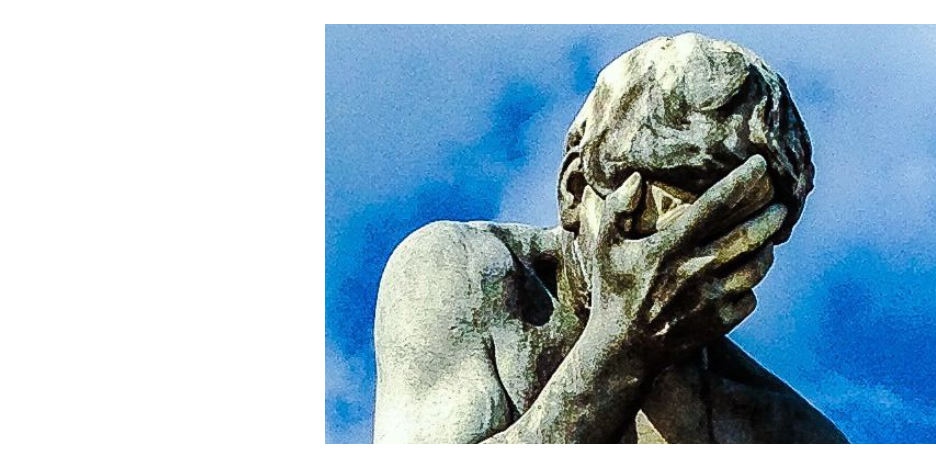
The question of finding the worth of philosophy itself has its own limitations. The concept of being worthy brings in the ideas of comparison, tradable value, what one gets in return, replacement value, a sense of transaction, gap due to absence, appreciation due to presence. This transactional, tradable, replacement value itself is a very small part of materialistic ideology of our human life.
See, our existence, thereby we being alive is dependent on so many materialistic things/ resources which are inherently important for our existence. You will not find a beggar asking for the explanation of the ideas in stoicism or nihilism. Most of the times he will only think about the ways to get the next meal. (Although, a beggar can also question about nature of him being a beggar
instead of a king if he wants)
In short, what I am trying to establish here is that for us as a human being, we need materialistic objects and our interactions with them through our senses to become aware of our consciousness. To become sure that the materialistic world and the sensations from them are not the only bounds of the life that we live in. The curse to human life here, I would say is that the first step in awareness of “knowledge greater than Self” starts with the awareness of our materialistic nature. Our first dose of true knowledge is only possible from the establishment of truths from the material world and our interactions with them. The material worlds being born from higher level of “uncertain things” reveal these uncertainties, thereby making us question their fundamental nature. This leads us to understand that there are things greater that what we are experiencing but there is no surety of completely true, certain answer.
Lifting the curse
I have a thought that, there is also benediction for this curse, rather anti-curse which is “the Curiosity”. Curiosity itself is the definition of philosophy. The whole purpose of philosophy is not to find the definitive answers, truths to the questions rather it is asking the questions and keep asking the questions.
Satisfaction of the curiosity is I think the boundary of the truths. The extent of satisfaction of the curiosity will be dependent upon how real or practical you want to get (What is the extent of real and practical also needs definition thereby). Here, there is no place for value, worthiness rather it is about satisfying the purpose and truly implementing philosophy to solve some real problems.
Bruce Lee has one famous quote on the same front:
“…here is the natural instincts and here is control. You are to combine the two in harmony. If you have one to the extreme, you will be very unscientific. If you are another to the extreme, you become, all of a sudden ‘a mechanical man’- no longer a human being. So, it is a successful combination of both, so therefore it’s not pure naturalness, or unnaturalness. The ideal is unnatural naturalness or natural unnaturalness.”
Bruce Lee
It is about the union of Self and not-Self to find the knowledge as Russel explains. You need not to infuse your boundaries, your prejudices to the questions of philosophy while on the quest of knowledge. You have to again lose your identity to find the real knowledge.
Again, Bruce Lee’s philosophy about being water reflects similar ideas about the nature of true knowledge from philosophy.
“Empty your mind, be formless, shapeless, like water. Now you put water in cup, it becomes the cup. You put water in bottle, it becomes the bottle. You put it in a teapot, it becomes the teapot. Now water can flow, or it can crash. Be water my friend”
Bruce Lee
Be water my friend!
– Bruce Lee
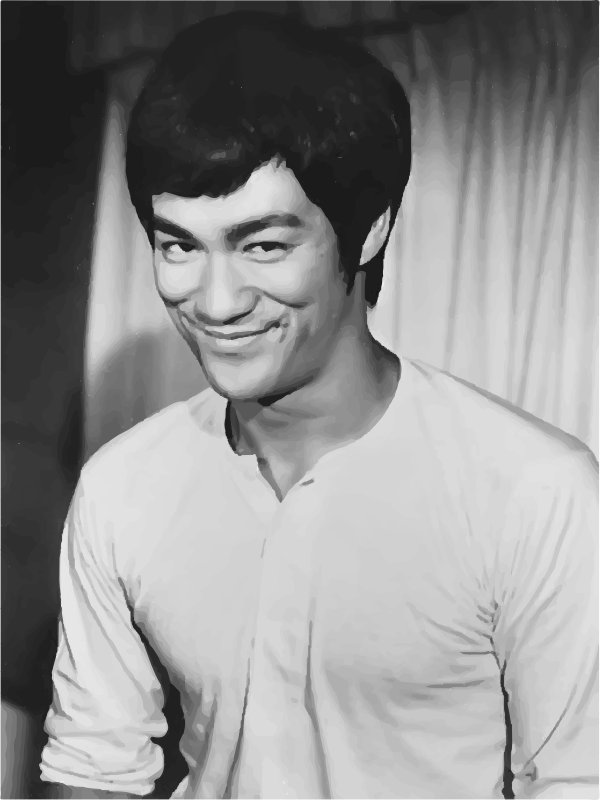
This also explains the innocent nature of knowledge. It takes shape of anything that it is in.
(That is the exact reason why we were forced to write the essay in our school on “Science: Curse or Boon”! OK, Jokes apart)
Having answers to the questions ends the quest thereby giving the boundary to the idea; asking the questions creates the possibilities. And creation of possibilities however uncertain they may be is the purpose thereby the worth of philosophy.
So, philosophy is not about finding definitive answers, it is about keeping on asking questions.
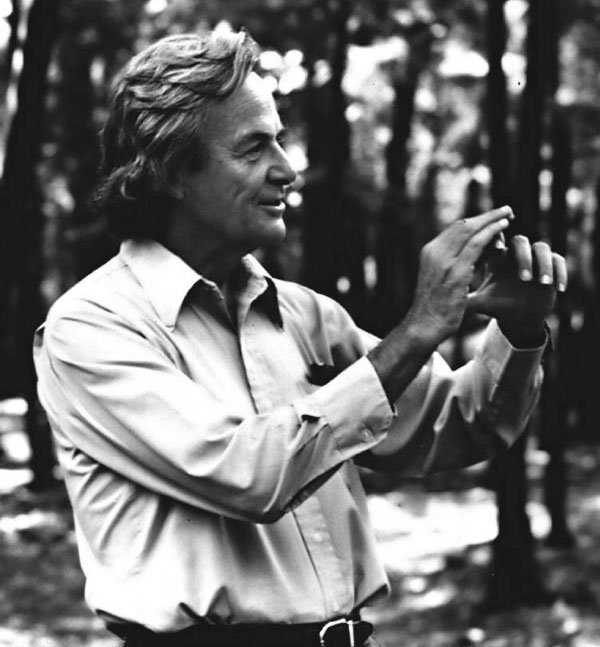
“I would rather have questions that can’t be answered than answers that can’t be questioned.”
– Richard Feynman
“Through the greatness of the universe which philosophy contemplates, the mind is also rendered great, and becomes capable of the union with the universe which constitutes its highest good”
– Bertrand Russel, The value of Philosophy from “The Problems of Philosophy”
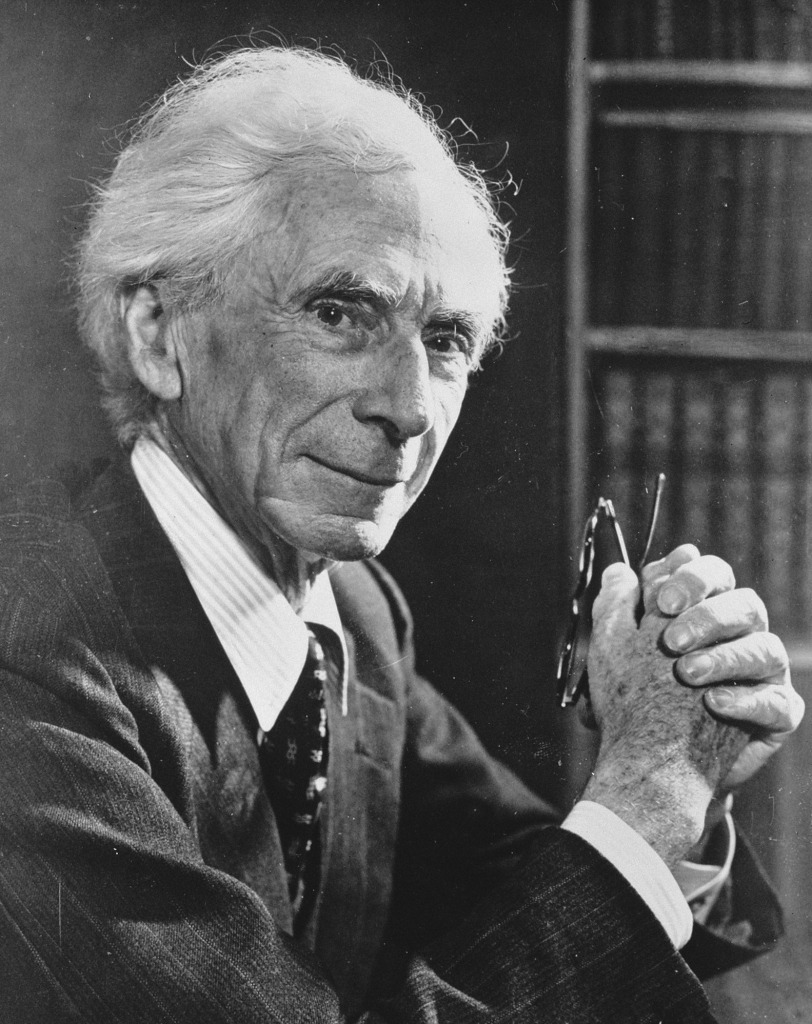
Further readings and references:
- The Problems of Philosophy by Bertrand Russel
- Richard Feynman– image from Wikimedia
- Bertrand Russel– image from Wikimedia
- Bruce Lee– image from Wikimedia
- Philosophers meme- Form starecat.com
- Clip from the lectures by Richard Feynman from youtube.com
- Clip on Bruce Lee’s Philosophy from Bruce Lee “The Lost Interview” from youtube.com

